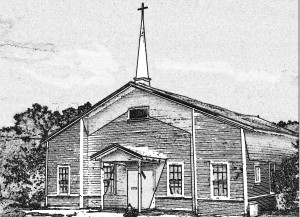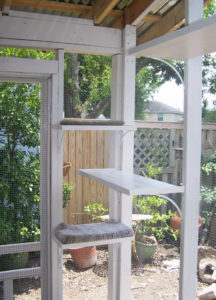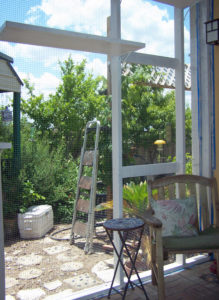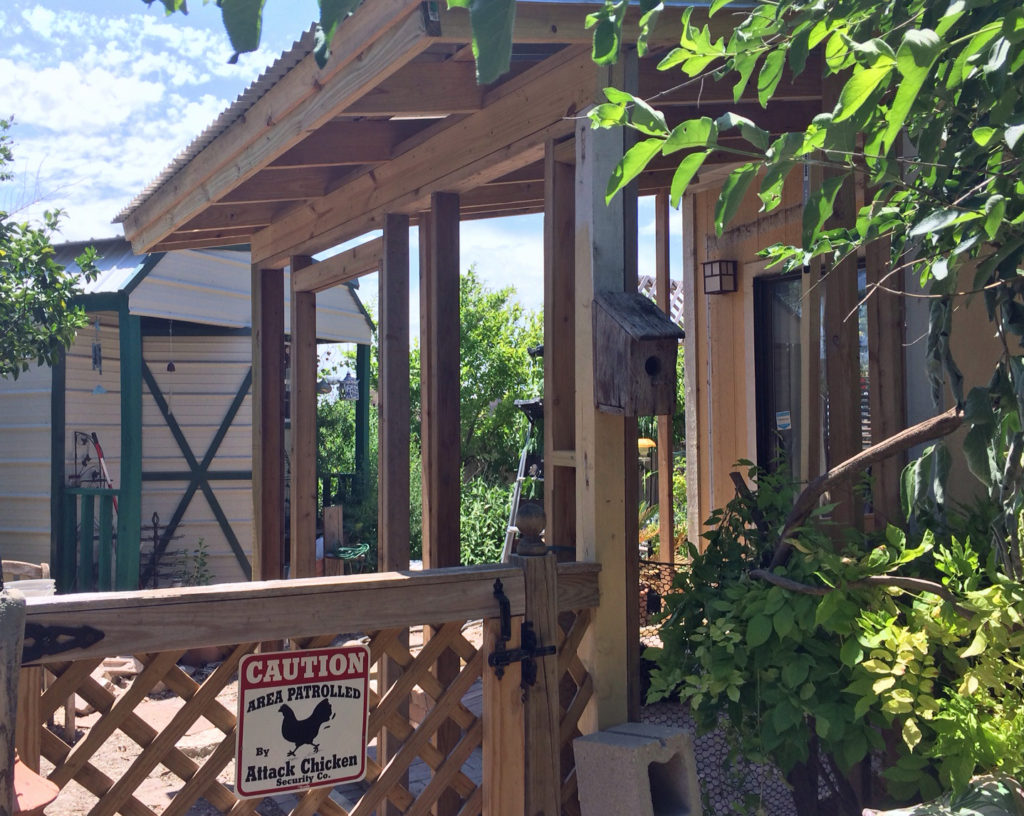Or, half of one, anyway. Titled Memorial Day. (I’m easing back on writing for the moment, being taken up with some other projects, including research for the next couple of historicals. And the household stuff, of course.)
Memorial Day
Jess Abernathy-Vaughn, being of that pale tint of skin which burned and freckled rather than tanned, lounged under the shade of a dark and ultra-violet-ray protective umbrella, planted at a rakish angle, deep into the beach sand at the Gulf-shore side of Galveston Island. She was also slathered with the highest SPF-level sunscreen available over the counter. In spite of not being a fan of sunbathing until one looked more like a leather saddlebag, she was truly enjoying this holiday. A second honeymoon, everyone called it, now that she and Joe had been legally wed for more than a year, and their son was now almost ten months old, and well-able to withstand the baby-sitting ministrations of his great-grandparents, living in the high-ceilinged apartment on the second floor of the ancestral hardware store on Main Square. She watched Joe – as fit and muscular as a classical Greek bronze of an athlete – mastering the use of a boogie-board in the indifferent surf with the same single-minded attention that he brought to every enterprise which took his interest. It killed Joe to not be the best at anything, so he applied himself relentlessly; football, soldiering, law enforcement – and of late, to dedicated fatherhood.
“We’ll be happy to have a baby in the house, once again!” Martha Abernathy exclaimed, even before Jess had ventured the casual boat of her suggestion – that she and Joe spend a luxurious weekend at a Galveston resort destination – onto the tranquil sea of familial relations over the Memorial Day holiday weekend. “Do make the reservations, Jess – you need to take a break now and again! It’s good for a marriage, to make a little time for yourself and your man. Don’t trouble yourself in the least, worrying about Little Joe!”
“Your grandmother has been longing to get her hands on our boy,” Joe grinned when Jess had first tentatively broached the question of a holiday in the sun, surf and sand. That was the evening in Spring Break week, and he had just come home from a tedious day of upholding the law in Luna City, and on the stretch of Route 123 which adjoined the municipality. “Let’s do it, Babe – go back for a weekend, and try and recall the people that we were before becoming a life-support-system for the rug-rat. I’m trying my best to be patient until the day that we can throw the ol’ pigskin around, but I need a break, too.”
Jess sighed. “I can hardly wait until he can cook … Richard swears that he will start teaching him to make a lovely proper mayonnaise as soon as he knows how to handle a whisk…”
“When will that be?” Joe spun his white work Stetson onto the old-fashioned coat-and-hat-rack which stood by the front door of the old cottage on Oak Street and collapsed with a sigh onto the overstuffed sectional sofa – an overstuffed and sprawling thing which took up altogether too much space in the old-fashioned front room, but which was too comfortable to give up entirely. Jess dropped their cooing offspring onto Joe’s mid-section and he yelped, “Ooof! What have you been feeding him, Babe – bricks?”
“Growing boy,” Jess replied, with a remarkable lack of feeling. “You entertain the Soup-Monster for a while I fix supper – tell him mad tales of all the dirtbags you have arrested, and all the speeders you have ticketed … I’ve been talking to him all day about the necessity for retaining receipts for cash business expenses. Among other topics of note.” (Soup-Monster was her nickname for her son, taken from Marsupial Monster, from the early days when she carried him in a baby-sling across her chest.)
“Sounds deathly dull,” Joe replied. Jess sighed with heavy sarcasm as she opened the deep-freeze unit in a corner of the kitchen.
“Attention to such minutia pays the bills for our incredibly lavish life-style,” she called in reply and Joe responded with a hearty horse-laugh. Jess smiled. It pleased and satisfied her to know that she could make Joe laugh. He was wrapped too tight, sometimes – too earnest, too serious entirely. Now, Jamie – she had always been able to make Jamie laugh.
Yes, that pan of frozen lasagna … and a mixed salad to go with, once the lasagna was warmed and bubbling in the oven. Say an hour or so; Jess was also tired; a full day of seeing to her various clients in Luna City, Karnesville and Beeville, driving hither and yon, with Little Joe uncomplaining in his car seat. He was a good baby, for all that. But now and again she really missed the days when she and Joe went out for burgers or pizza as impulse took them, or drove into San Antonio for a meal at one of the Riverwalk restaurants, a table on one of the outside terraces, overlooking the river, the lights that twinkled like fireflies in those monumental cypress trees lining the artfully-channelized river, while live music spilled from one of the other places, and she and Joe people-watch in the twilight, as swifts and grackles swooped into their night roosts. All that without the labor of hauling the Soup-Monster and the heavy freight of his impedimenta – the diaper bag, the stroller, the baby-car-seat and all that along with them.
No – a weekend of leisure in Galveston would be just the ticket. Jess covered the lasagna with tinfoil, turned the oven to 350 and went to join her menfolk, just as Little Joe grinned at his father, an open and uninhibited grin which revealed all of two new baby teeth in his lower jaw. Jess’s heart turned over in her chest – the child looked so like Joe, it was uncanny, even to his tiny nose, which gave a hint of the ancestral Vaughn beakiness, even now. A miracle, the blending of her blood, flesh and bones with Joe’s – and yet, Little Joe was his own person, even at the age of eight months! A whole, new, original, and miraculous little person … again, Jess thanked with her whole heart for Miss Letty’s wise advice.
“Supper in about fifty minutes,” she said, as he settled onto the sectional next to Joe. “Give me twenty minutes, I’ll feed the Soup-Monster and put him down to sleep, so that we can have supper in peace.”
“Sounds like a plan,” Joe replied. “And the weekend thing, too. Let’s go for it, Babe. We need a break, some R-and-R, you know. Be good for the Monster to learn how to wind the grands around his little finger.”
“Share the blessings,” Jess leaned her head against Joe’s substantial shoulder, the one with the uniform patch embroidered with the city logo of the Luna City Police Department sewn upon it. Another brief moment of pure contentment; Gram and Grumpy had insisted that such in retrospect would be considered the happiest times of their lives. Jess had of late begun to see that her grandparents were right about that.
Now she watched Joe abandon the mild surf, the boogie-board under his arm, striding up through the receding surf, which cast a brief swath of lacy bubbles across the white sand. He collapsed with a brief grunt onto the spread beach towel at her side. Jess spared a covert and concerned glance at him. She’d bet anything his knees were giving him hell again. Good thing she had packed a bottle of extra-strength Motrin. She would mildly suggest that he take a few before they went out for dinner, and hope that he would take the suggestion.
“How’s the water?” She asked. Joe chuckled.
“Salty and wet, Babe.”
“It’s the ocean, it goes without saying.”
Joe lay back in the shade with a sigh. “Thought about where to go for dinner? I’ve an appetite for fish tacos. That place on Seawall with the two big-ass balconies overlooking the Gulf would suit me fine. OK with you?”
“Perfect,” Jess agreed. “A bit noisy, but we can go early… it’s an anniversary for us, you know. We can celebrate.”
“Oh?” Joe raised an eyebrow, and Jess grinned.
“The first time we seriously kissed … and umm. Other stuff.”
“Oh, that.” Now Joe grinned, reminiscently. “After the Memorial Day pig-roast at the V, you had too much to think, and I walked you home? Yeah, I remember.” The grin widened into an expression of outright lewd reminiscence. “Hoo, boy – do I remember, Babe! I was so damned glad you didn’t punch me in the nuts when I made the first move…”
“Joseph P. Vaughn, you are no gentleman!” Jess exclaimed with an attempt at a Scarlett O’Hara exaggerated Southern accent and swatted at her husband with her discarded tee-shirt top. Which launched a good quantity of sand at him – but he just chuckled again and lay back on his spread beach towel.
“No regrets though, Babe?” he said, and Jess shook her head.
“No regrets, Joe.”







Recent Comments